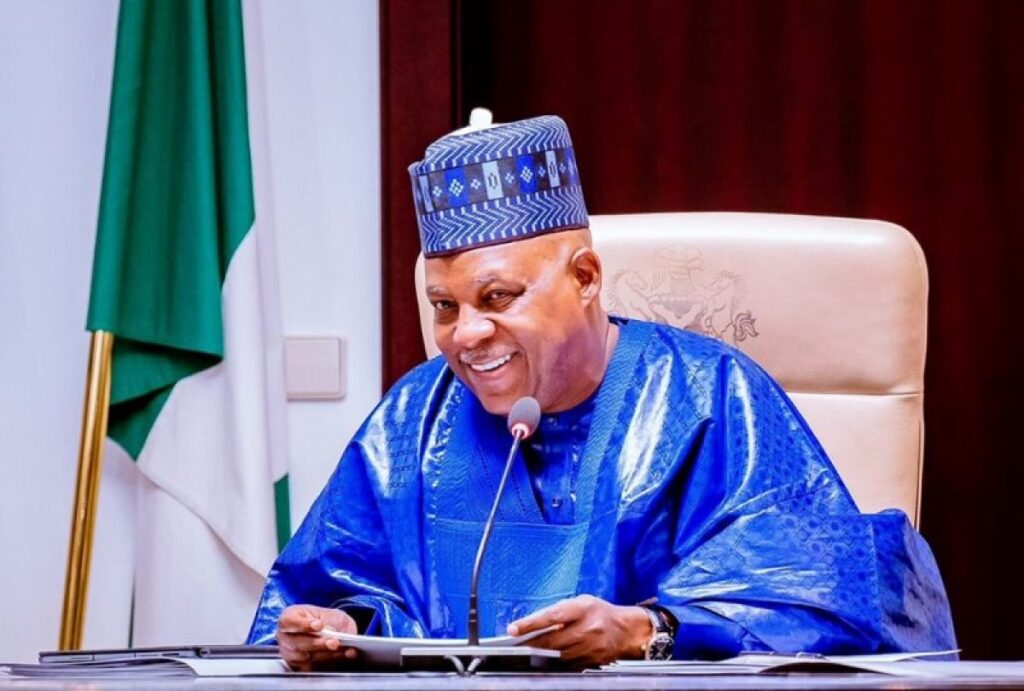By Ernest Osogbue
On February 16th, 2024, the Federal Competition and Consumer Protection Commission FCCPC shut down Sahad Stores Abuja. According to the Commission, Sahad Stores had contravened section 155 (3) of the FCCPC Act. Surprisingly, a few hours later, the commission reopened the store to shoppers, leading many Nigerians to wonder how and why the contravention was resolved with such alacrity, knowing that the offenses carried punishments that ran to millions of Naira in fines, and prison terms for the company directors on conviction.
Nigerians have always wondered why institutions usually fail in our country and have come up with different reasons for such phenomenon. In my studies, however, I have come to realize that there are many reasons for institutional failures and that institutional failures are not peculiar to Nigeria. In the developed world, institutions have collapsed on numerous occasions. The reasons for such collapse could be due to leadership naivety, poor management, inadequate resources, policy failure, or a lack of legitimacy. Institutional failure could also be due to external forces, such as an act of God, market forces, or a change in government. Corruption, environmental, and social factors could also impact the success of an institution.
By and large, it is difficult sometimes to pinpoint one particular reason for institutional failure because several factors could combine to crumble an institution. The failure of one institution could equally have a domino effect on other institutions and ultimately lead to their collapse. It is therefore important to note that for a system to be effective, institutions within the same framework must work in synergy rather than at cross purposes.
This brings us to Nigeria and why some national institutions have failed to deliver on their mandates. I wish to highlight three incidents that spurred me to put pen to paper on the matter. A few months ago, on a group WhatsApp chat, I shaded a retired police officer friend that he should take vicarious responsibility for the failures of the Nigeria police. He had retorted that he would never do so. In a follow-up telephone conversation, however, he narrated an incident that took place while he was a detective at the State Criminal Investigation Department SCID, Panti Street, Lagos, many years ago.
According to him, he was the lead detective in an investigation, and as their probe was getting close to conclusion and the possibility of prosecution looming, the suspect had appealed to him to back off. Offering him a bribe running into millions of Naira. He had rejected the offer, as he was determined to get to the bottom of the matter. After a few more unsuccessful attempts at this, my friend didn’t hear from the suspect again. He was, however, summoned by his Officer-in-Charge, O/C, a few days later, with instructions to come with the casefile. When he, however, requested the casefile from his boss the next day, he was told to focus on other cases and to forget about the casefile.

It then dawned on my friend that his boss may have accepted the bribe that he had rejected. According to him, the incident had a demoralizing effect on his approach to work from then. He realized that despite his integrity and diligence, a superior officer could compromise, and there was nothing he could do. As a result, he adjusted his modus operandi.
Nigerians would also remember that in the twilight of his second term, President Mohammadu Buhari had suddenly granted pardon to two former governors who were convicted of graft during their governorship tenures. Former governors Joshua Dariye of Plateau State and Jolly Nyame of Taraba State were the beneficiaries. While this incident may not be so out of place, as the president in Chapter 6, Part 1, Section 175 of the Nigerian Constitution, has powers to grant pardons and amnesty to whomsoever he pleases. It, however, brings to question the effect these pardons may have on the officers and men who risk their lives to investigate cases and secure convictions.
While most people would expect the president to use this power discreetly for political offenders rather than convicted criminals and treasury looters, the overall implication of it on the officers and men of the Economic and Financial Crimes Commission EFCC, is far more damaging. It must be noted that for years, these officials undertook a diligent painstaking investigation of these former governors. They faced threats, were offered bribes, and must have encountered other challenges before building a case, which resulted in the conviction of these high-profile felons. How do these officials remain diligent in the future, knowing they could be thwarted by a stroke of Mr. President’s pen?
My third and final incident unfolded on 31st August 2024, at the opening of Sahad Hospitals Abuja, when Vice President Kashim Shettima openly confessed to being responsible for the speedy reopening of Sahad Stores, which belongs to his friend Alhaji Ibrahim Mijinyawa. According to Shettima; “I called the head of the agency (FCCPC) and told him to reopen the store before coming to tell me what happened.” That is a direct quote of the vice president at the opening of Sahad Hospitals, a sister company of Sahad Stores. Shettima went on to extol the virtues of Alhaji Mijinyawa, whom he said could have kept his money to himself, but instead, opted to invest in businesses and create jobs.
Unknown to the Vice President, his action runs contrary to the duties of his office, which is to uphold the laws of the Federal Republic of Nigeria; and equally runs counter to the provisions of the Fifth Schedule, Part 1 of the Constitution, which states inter alia that; a public officer shall not put himself in a position where his personal interest conflicts with his duties and responsibilities. The vice president forgot his oath to protect and defend the Nigerian Constitution. He used his position to intimidate an agency from carrying out its constitutional duties; an illegality.
Despite their billion dollar investments in America, Elon Musk, Jeff Bezos, and Mark Zuckerberg are constantly under legislative and law enforcement oversight, this is to ensure that they operate within the law. Creating jobs does not grant anyone the right to abuse procedures. After all, the businesses are for profit and not for charity.
The question arises: How can the EFCC and police detectives function effectively when the possibility of executive interference looms large? Would regulatory agencies be able to sanction Sahad Stores, or Sahad Hospitals for that matter, for a contravention, while Shettima remains the Vice President? How do junior officers function effectively when the likelihood of compromise by their superiors is a clear and present reality? It becomes quite obvious, therefore, that interference from superiors is one of the major reasons for institutional failures in Nigeria.









